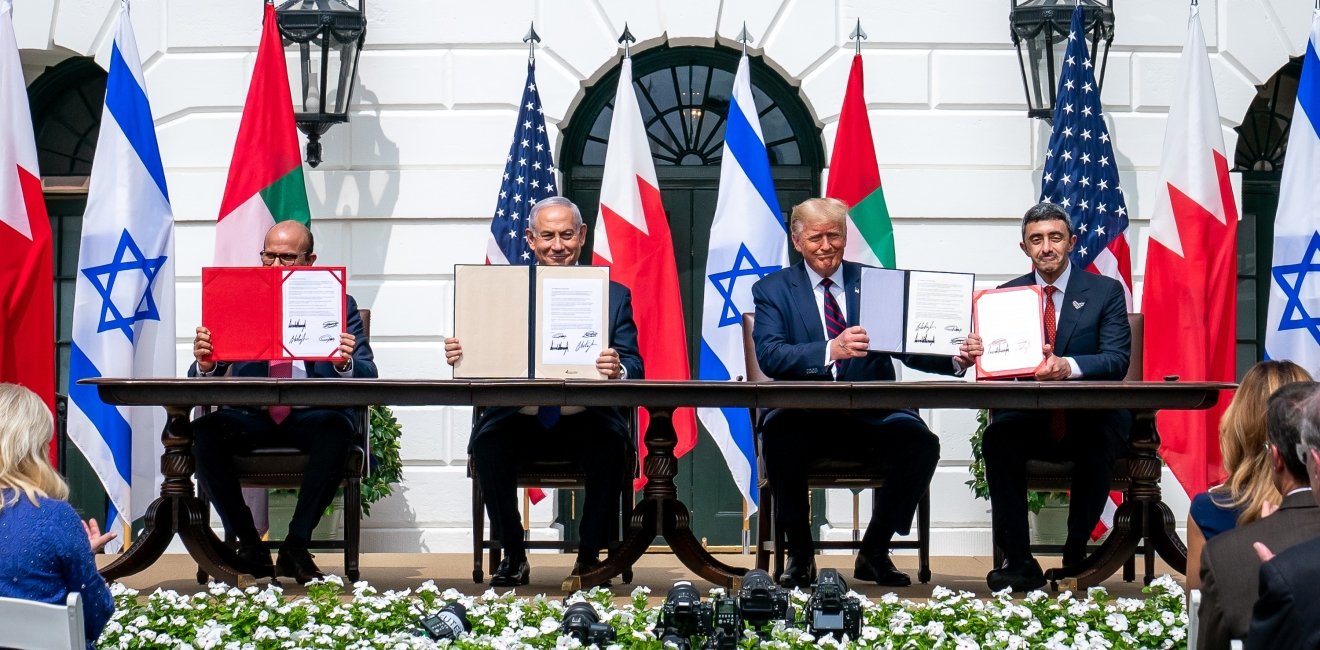WASHINGTON–The Wilson Center has announced it will collaborate with the Abraham Accords Caucus as part of its Abraham Accords Initiative. Led by the Wilson Center’s Middle East Program, this initiative hones in on the challenges and opportunities of cooperation between Arab countries and Israel, and delves into important political, economic, and security developments. The Initiative convenes officials from the signatory countries, countries with peace treaties with Israel, and US government, regional and issue experts, as well as private sector voices to better understand the geopolitical and socioeconomic implications for the region and beyond.
"We look forward to collaborating with Caucus Members and others, and sharing our research and analysis of key developments and their implications across the Middle East and North Africa (MENA) region. From the trade agreements and investments that have emerged from the Accords to cooperation on key matters like food security and energy to stronger ties between MENA and countries in Asia, the Abraham Accords are creating exciting new pathways for collaboration," noted Ambassador Mark A. Green, President and CEO of the Wilson Center.
"In a still-unstable region, the Abraham Accords process supported by the last two administrations and uniting various Middle Eastern states has enormous potential to advance regional security and resolving difficult long-term problems plaguing the Middle East," added Ambassador Jim Jeffrey, Chair of the Middle East Program.
Notes to editors:
- The Wilson Center provides a strictly nonpartisan space for the worlds of policymaking and scholarship to interact. By conducting relevant and timely research and promoting dialogue from all perspectives, it works to address the critical current and emerging challenges confronting the United States and the world.

Middle East Program
The Wilson Center’s Middle East Program serves as a crucial resource for the policymaking community and beyond, providing analyses and research that helps inform US foreign policymaking, stimulates public debate, and expands knowledge about issues in the wider Middle East and North Africa (MENA) region. Read more

Explore More
Browse Insights & Analysis
Iraq Should Consider Extending UNAMI’s Mission



